Elon Musk Tesla, SpaceX and the Quest for a Fantastic Future
|
|

Ashley Vance, a prominent writer on technology ranging from cyber espionage to DNA Sequence and Space exploration, describes an informative and easy-to-flow biography of one of today’s top innovators. While maintaining a lively pace, he delves into Elon Musk’s works with particular passion in a way that is more accessible and exciting.
Elon Musk, one of the most impressive contemporary American “Engineering Entrepreneurs,” has developed a reputation for boldness, brashness and vision in many ways and competence. He is passionate about not just landing people on Mars but creating a new human society there.
Musk was born in Pretoria in 1971 to a Canadian mother and Afrikaner father. Musk’s father was a rare researcher, neither Elon nor anyone else in the family will talk about the ways he was a scarring influence. Musk suffered enough violence as a child both at home and school. The author gave an instance of back when Musk was in eighth or ninth grade, he was kicked in the head, thrown down a flight of concrete stairs then set upon the landing. He was kicked and beaten till he blacked out. He required hospital care and a week at home to recover. Irrespective of that, Elon Musk was a die-hard reader. He exhausted the school library and literally read the encyclopedia. He was good at spotting facts statistics, explanations and most importantly remembering what he read. As an undergraduate, he was an exceptional kid who was versed in space-based solar power plants and its use of ultracapacitors for energy storage with a consistent interest and a goal to make a difference.
Vance underlines the degree to which Musk’s dual-track undergraduate years were obviously reflected in his thinking even in his early 20s. He presented that those Silicon Valley experiences gave Musk both the capital and contacts that he was able to use as a springboard for his more ambitious projects. They gave him an early introduction to corporate infighting which bred a strong impulse going forward to make sure that he kept control of his companies and they taught him at least limited lessons in how to be an effective and hard-driving manager. “I could code way better,” Musk says to the software engineers at Zip2 “And I would just go in and fix their code. I would be frustrated waiting for their stuff, so I’m going to go fix your code, and now it runs five times faster, you idiot”. The author cites another example in which Musk publicly chastised and then corrected an engineer who had miswritten a quantum mechanics equation, “I’m like, ‘how can you write that?’ Then I corrected it for him. He hated me after that. Eventually, I realized though I might have fixed that thing now I’ve made the person unproductive. It just wasn’t a right way to go about things. He learned a profound lesson not to completely ignore how other people feel.
Musk has consistently brought clarity on both the engineering problems and the financial hurdles that have heretofore kept humankind earthbound. The triumvirate of companies most dear to Musk, and with which he is most closely associated is made up of Tesla Motors, which produces electric cars, SolarCity, which produces electricity; some feeds free fueling stations for Tesla owners and SpaceX, a private company which is not entirely low key but aims at making humanity a multi-planetary species.
Vance quotes Antonio Gracias, a friend of Musk, also an investor in both Tesla and SpaceX, founder and CEO of Valor (Equity Partner). He said “I’ve never seen anything like Musk’s ability to take the pain. The year 2008 was a big year for Musk both personally and financially. His first marriage ended; he became perilously close to losing just about every penny he had earned; both Tesla and SpaceX were on the brink of bankruptcy. There are few important bright spots as well. In July, Musk met Tallulah Riley, a British actress 14 years his junior who would end up being his second wife. September, he finally launched Falcon I and most importantly his business was financially reprieved.” Vance wrote, “the deal ended up closing on Christmas Eve, hours before Tesla would have gone bankrupt. Musk had just a few hundred thousand dollars left and could not have made payroll the next day. Musk eventually put $12 million, and the investment firm puts the rest.”
One of the strengths of Vance’s book is healthy skepticism. Within Silicon Valley, he writes in his first few pages, Musk was a “deity.” Wrapping it all up at the end provides a good overview and synthesis. The author concluded with a sentence that was drawn from Vance’s last supper with Musk which includes the following quoted line:
“ I will like to die on Mars, Just not on impact.”
THE BIG THREE – KEYPOINTS
Key point #1: Musk invested enough time studying as a child. He believes in effective time management.
Key point #2: He worked with the right people ranging from company employees to the investors
Key point #3: Musk survived through the brink of bankruptcy, divorce, even near-death diseases because of his unwavering drive and passion for his dreams.
One Last Thing
“Good ideas are always crazy until they’re not.”
―

Leave a Reply
Want to join the discussion?Feel free to contribute!